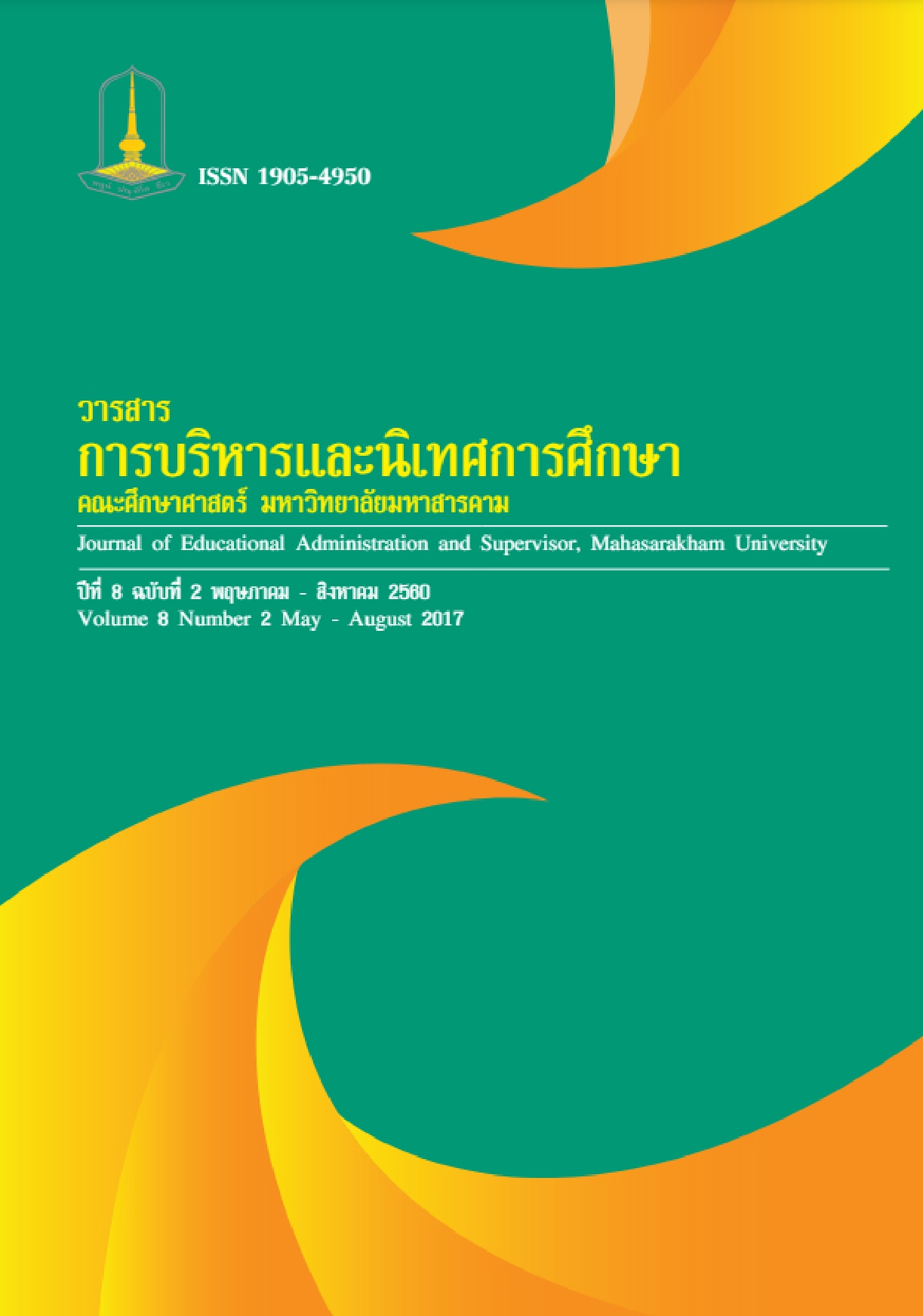Twenty first Century Learning Skills of Non-Teaching License Teachers
Main Article Content
บทคัดย่อ
Twenty first century learning skills are necessary for our lives and vital tools to self-development. This study aimed to study 21st century learning skills of non-teaching license teachers. The instrument used was a questionnaire. Forty eight of non-teaching license teachers who enrolled program of professional standard in curriculum development were asked to answer the questionnaire, then presented in terms of percentage, mean, and standard deviation. The result showed that they had perception towards 21st century learning skills were at the high level. Discussion is need more criticized to teacher development and preparation.
Downloads
Article Details
เอกสารอ้างอิง
Archambault, L., Wetzel, K., Foulger, T. S., & Kim Williams, M. (2010). Professional development 2.0: Transforming teacher education pedagogy with 21st century tools. Journal of Digital Learning in Teacher Education, 27(1), 4-11.
Darling-Hammond, L. (2006). Constructing 21st-century teacher education. Journal of teacher education, 57(3), 300-314.
Gut, D. M. (2011). Integrating 21st century skills into the curriculum. In Bringing schools into the 21st Century (pp. 137-157). Springer Netherlands.
Häkkinen, P., Järvelä, S., Mäkitalo-Siegl, K., Ahonen, A., Näykki, P., & Valtonen, T. (2017). Preparing teacher-students for twenty-first-century learning practices (PREP 21): a framework for enhancing collaborative problem-solving and strategic learning skills. Teachers and Teaching, 23(1), 25-41.
Kereluik, K., Mishra, P., Fahnoe, C., & Terry, L. (2013). What knowledge is of most worth: Teacher knowledge for 21st century learning. Journal of Digital Learning in Teacher Education, 29(4), 127-140.
Lambert, J., & Gong, Y. (2010). 21st century paradigms for pre-service teacher technology preparation. Computers in the Schools, 27(1), 54-70.
Nuangchalerm, P. (2016). Moderate class, more knowledge: Policy to theory and practice. Praewa Wichakarn, Kalasin University Journal, 3(1), 137-146. (in Thai)
Prachagool, V., Nuangchalerm, P., Subramaniam, G., & Dostal, J. (2016). Pedagogical decision making through the lens of teacher preparation program. Journal for the Education of Gifted Young Scientists, 4(1), 41-52.
Quasthoff, U., & Wild, E. (2014). Learning in context from an interdisciplinary perspective. Learning, Culture and Social Interaction, 3(2), 69-76.
Rabi, N. M., & Bin Masran, M. N. (2016). Creativity characteristics in teaching students with learning disabilities among pre-service teacher in UPSI. International Journal of Advanced and Applied Sciences, 3(11), 66-72.
Robin, B. R. (2008). Digital storytelling: A powerful technology tool for the 21st century classroom. Theory into practice, 47(3), 220-228.
Saavedra, A. R., & Opfer, V. D. (2012). Learning 21st-century skills requires 21st-century teaching. Phi Delta Kappan, 94(2), 8-13.
SEAMEO Innotech Regional Education program. (2010). Teaching competency standards in south east Asian countries. SEAMEO Innotech. Philippines
Siriluk, W., Prachanban, P. & Parnichparinchai, T. (2014). Indicators Development of Student’s Skills in the 21st Century. Journal of Education Naresuan University, 16(4), 155-165.
Smith, J., & Hu, R. (2013). Rethinking teacher education: Synchronizing eastern and western views of teaching and learning to promote 21st century skills and global perspectives. Education Research and Perspectives, 40, 86.


